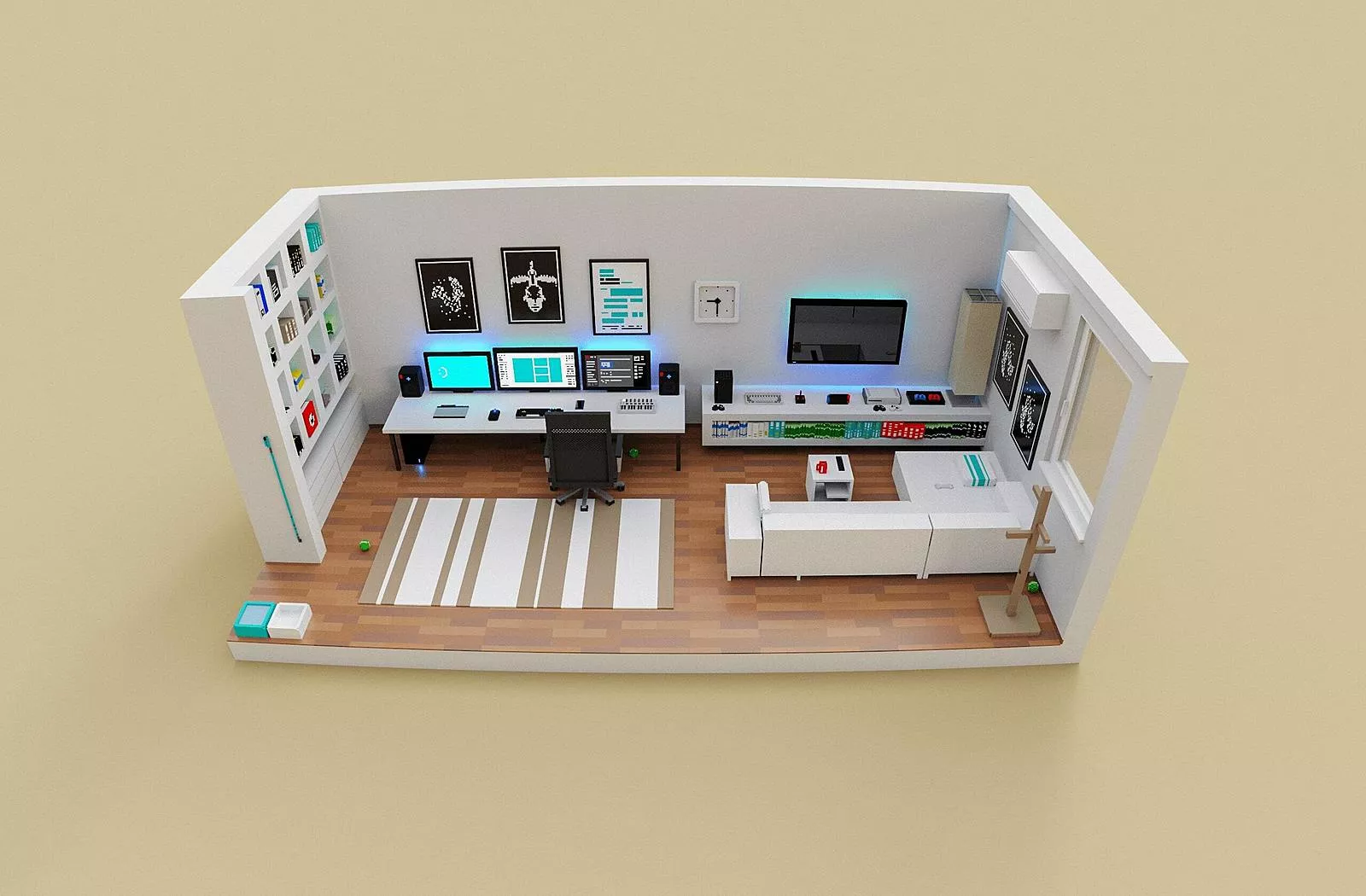Since February 2020, many workers had to adapt to a home office setup. For many, it was the first time working in such an environment.
The habit of comfortable water cooler chitchat was forcefully substituted with sitting on uncomfortable kitchen chairs for 8+ hours a day, and the audible boredom of kids attending school from home substituted the familiar office murmur.
“How to work remotely?”
In the same period, some of the most popular Google search queries related to working from home were working from home tips, working from home tax, wellbeing and parenting, along with coronavirus working from home memes, because one has to keep their spirits up during a global pandemic breakout. The workforce was overwhelmed and needed answers.
More and a year and a half later, we’ve become experienced remote workers. Many companies and workers realized that working from home is a viable option, regardless of the pandemic’s further course.
The (home) office dilemma
Having experienced the advantages of working remotely firsthand, many workers don’t feel like coming back to the office at all – at least not full-time.
Like Infinum, many IT companies have started introducing the hybrid working setup, which allows employees to combine remote and office work. Companies that haven’t are being met with significant public backlash, as in the case of Apple employees.
If you’re lucky to have a choice, consider these factors when making the decision.
Missing the social component
Time saved on commuting is one of the most important benefits of remote work. But you might start to miss it after a while – at least it got you outside and seeing people more often.
When you work from home, you have to create those activities on your own and be intentional about them. If you start to feel too isolated and lonely, try to change up the routine a little, so sometimes you work from the coffee shop or check out the co-working places nearby. Go for breaks outside, meet up with someone, and use that time to rest and unwind.
Also, don’t forget to use your team chat and calls for small talk as well as serious talk. Sharing life stuff with your colleagues is a great way to connect and sometimes it even helps you communicate work-related issues because you understand the person you are talking to much better.
Less interruptions, but not enough focus
When you work remotely, you aren’t interrupted by conversations you don’t want to have. Still, don’t get so caught up in work that you forget to take a break from time to time. You can do something like the Pomodoro technique with 5-minute breaks every half an hour or whatever works for you. Just stretch out or step outside to get some fresh air and sunlight.
However, your home being your office could also make it easier for you to get distracted – or for others to distract you. If you live with other people, you will have to set up ground rules with them. Also, if you don’t have a dedicated room for the home office, having a good pair of noise-canceling headphones is a life-saver.
Flexibility is a double-edged sword
As appealing as taking a break to watch an episode of your favorite show might sound, it only means you’ll have to work longer in the afternoon and your free time will start much later. To block websites that might be wasting a lot of your time, you can use something like StayFocusd. Similarly, there are apps to help you manage smartphone notifications, or you can turn on the do-not-disturb mode at your preferred time.
I recommend scheduling your day at the beginning of the day and generally sticking to that schedule. If you want to work each day from 8 AM, that allows you to exit the working mode at 4 PM, when you can switch off your work laptop, log out of your work email account, and turn off all work-related notifications.
It’s good to have a choice
As companies are embracing more flexibility in their work arrangements, there are many options now on the table – become a permanent remote worker, go to the office for a couple of days a week, or take a month to work at a remote location. While some people can’t wait to see their office desk again, others got used to the freedom that comes with working from home and they are not going to give it back easily.
Personally, having the flexibility to choose on your own is the best for maximizing productivity. You still enjoy the social benefits of an office environment but also the comfort of your home when you prefer solitude.
If you are exploring remote positions in software development, discover our 39 job listings.











